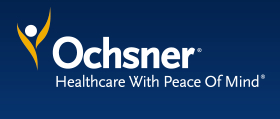C-Pulse® System: A Heart Assist Device Clinical Study
| Status: | Completed |
|---|---|
| Conditions: | Cardiology |
| Therapuetic Areas: | Cardiology / Vascular Diseases |
| Healthy: | No |
| Age Range: | 18 - Any |
| Updated: | 12/27/2018 |
| Start Date: | September 12, 2012 |
| End Date: | October 26, 2018 |
C-Pulse Heart Assist Device pivOtal stUdy treatiNg paTients With modERate to Severe Heart Failure C-Pulse® System: A Heart Assist Device Pivotal IDE Study
Sunshine Heart is sponsoring a prospective, multi-center, randomized trial to assess the
safety and efficacy of the C-Pulse® System ("C-Pulse").
The purpose of the study is to determine whether the use of the C-Pulse as a treatment for
patients in moderate to severe heart failure (HF) has demonstrated safety and efficacy, such
that the C-Pulse System merits Food and Drug Administration (FDA) approval to market the
device in the United States.
safety and efficacy of the C-Pulse® System ("C-Pulse").
The purpose of the study is to determine whether the use of the C-Pulse as a treatment for
patients in moderate to severe heart failure (HF) has demonstrated safety and efficacy, such
that the C-Pulse System merits Food and Drug Administration (FDA) approval to market the
device in the United States.
The C-Pulse® System is indicated for use in patients with moderate to severe heart failure
while on optimal heart failure drug and on device therapies. The C-Pulse® System is intended
to relieve the symptoms of heart failure, improve quality of life and cardiac function, and
reduce the need for heart failure hospitalization. It is intended for use in hospital and at
home. It is not intended as a replacement for heart function; it is not life sustaining or
life-supporting therapy. It does not preclude the use of other heart failure therapies, such
as valve surgery, heart transplantation or LVAD.
The Sunshine Heart C-Pulse System is an implantable, non-blood contacting, non-obligatory,
heart assist device. The system provides cardiac assistance through an extra-aortic balloon
Cuff and ECG sense lead connected by means of a Percutaneous Interface Lead (PIL) to an
external pneumatic Driver. The PIL is held secure externally, at the exit site, with a simple
adhesive clip (C-Patch or similar) for immobilization of the external part of the PIL. The
Driver is adjusted using a dedicated notebook computer (Programmer) with specialized
software.
The non-blood contacting feature of the C-Pulse® System also allows the device to be
intermittently turned off as tolerated. This allows the patient freedom for personal hygiene.
while on optimal heart failure drug and on device therapies. The C-Pulse® System is intended
to relieve the symptoms of heart failure, improve quality of life and cardiac function, and
reduce the need for heart failure hospitalization. It is intended for use in hospital and at
home. It is not intended as a replacement for heart function; it is not life sustaining or
life-supporting therapy. It does not preclude the use of other heart failure therapies, such
as valve surgery, heart transplantation or LVAD.
The Sunshine Heart C-Pulse System is an implantable, non-blood contacting, non-obligatory,
heart assist device. The system provides cardiac assistance through an extra-aortic balloon
Cuff and ECG sense lead connected by means of a Percutaneous Interface Lead (PIL) to an
external pneumatic Driver. The PIL is held secure externally, at the exit site, with a simple
adhesive clip (C-Patch or similar) for immobilization of the external part of the PIL. The
Driver is adjusted using a dedicated notebook computer (Programmer) with specialized
software.
The non-blood contacting feature of the C-Pulse® System also allows the device to be
intermittently turned off as tolerated. This allows the patient freedom for personal hygiene.
Inclusion Criteria:
1. Left ventricular ejection fraction (LVEF) ≤ 35% (by transthoracic ECHO within 90 days
prior to randomization)
2. ACC/AHA Stage C and NYHA III to ambulatory Class IV
3. Age ≥ 18 years
4. Must have cardiac resynchronization therapy (CRT) when clinically indicated, implanted
≥90 days prior to randomization.
5. Must have an implanted cardio-defibrillator (ICD) when clinically indicated, implanted
at least 30 days prior to randomization.
Note: If a subject is clinically indicated for an ICD but refuses the ICD, he/she may
be enrolled. Please document the refusal of the ICD in the medical record and the
eCRFs.
6. Patient must be on stable, up-titrated medical therapy as recommended according to
current guidelines (Circulation. 2009; 119 (12): 1977-2016) which minimally includes:
- ACE-inhibitor (ACE-I) at stable doses for 1 month prior to enrollment, if
tolerated, AND
- a beta blocker (carvedilol, sustained release metoprolol succinate, or
bisoprolol) for 3 months prior to enrollment, if tolerated, with a stable
up-titrated dose for 1 month prior to enrollment.
- This also includes an Angiotensin II Receptor Blocker (ARB) at stable doses for 1
month prior to enrollment, if tolerated, when ACE-I is not tolerated.
- Stable is defined as no more than a 100% increase or a 50% decrease in dose. If
the patient is intolerant to ACE-I, ARB, or beta blockers, documented evidence
must be available.
- In those intolerant to both ACE-I and ARB, combination therapy with hydralazine
and oral nitrate should be considered. Therapeutic equivalence for ACE-I
substitutions is allowed within the enrollment stability timelines.
- Aldosterone inhibitor therapy should be added. Eplerenone requires dosage
stability for 1 month prior to enrollment.
- Diuretics may be used as necessary to keep the patient euvolemic.
7. Functional limitation due to heart failure as defined by a 6 Minute Walk test of ≥ 175
≤ 375 meters, measured within 30 days prior to randomization
8. At least one hospitalization for decompensated heart failure as defined below, while
on heart failure medications, within 12 months prior to randomization or BNP level >
300 or NTproBNP > 1500
Heart failure related hospitalization is defined by the following:
- signs and symptoms of worsening heart failure; and
- treatment with intravenous heart failure therapy (including but not limited to
diuretic or inotropic therapy) and
- a minimum of one date change in the hospital
9. Patient understands the nature of the procedure and on-going device therapy, is
willing to comply with associated follow-up evaluations, and provide written informed
consent prior to the procedure.
Exclusion Criteria:
1. Any evidence, as assessed within 90 days prior to enrollment, of either:
1. Ascending aortic calcification on posterior-anterior or lateral chest x-ray
2. Calcific ascending aortic disease as detected by non-contrast CT scan
3. Ascending aorto-coronary artery bypass grafts, history of aortic dissection,
Marfans disease or other connective tissue disorder or repaired aortic
coarctation OR
4. Has had an ascending aortic composite graft or root replacement
2. Aorta not conforming to specified dimensional constraints defined by CT scan, most
specifically mid ascending aortic outside diameter less than 28 mm or greater than 42
mm
3. Inotrope dependence - inability to wean from inotropic therapy
4. ACC/AHA Stage D heart failure or non-ambulatory NYHA Class IV subject
5. Hypertrophic obstructive cardiomyopathy, restrictive cardiomyopathy, pericardial
disease, amyloidosis, active myocarditis, diastolic heart failure or technically
challenging congenital heart disease
6. Reversible cause of heart failure that may be remedied by conventional surgery or
other intervention
7. Moderate to severe aortic insufficiency (≥ 2+)
8. ST elevation myocardial infarction (STEMI) within 30 days prior to randomization
9. Cardiac surgery within 90 days prior to randomization
10. Prior cardiac transplantation, left ventricular reduction surgery, passive restraint
device or surgically implanted left ventricular assist device
11. Anticipated concomitant cardiac surgical procedure
12. Serum creatinine ≥ 2.5mg/dL or any form of dialysis within 30 days prior to
randomization
13. Evidence of intrinsic hepatic disease as defined as biopsy proven liver cirrhosis; or
liver enzyme values (AST, ALT or total bilirubin) that are > 3 times the upper limit
of normal within 30 days prior to randomization
14. Patient has severe intrinsic pulmonary disease in judgment of the investigator
15. Body Mass Index (BMI) < 18 or > 45 kg/m2
16. Suspected or active systemic infection
1. Within 14 days prior to randomization and
2. Evidenced by positive culture, antibiotics for empiric treatment or elevated WBC
> 12K and temperature >38o C
17. Stroke or transient ischemic attack (TIA) within the 90 days prior to randomization;
or > 80% carotid stenosis as determined by carotid Doppler ultrasound within 90 days
prior to randomization
18. Positive serum pregnancy test, for women of childbearing potential
19. Patient has a condition, other than heart failure, which would limit survival to less
than 2 years
20. Patient is currently enrolled or has participated in the last 30 days in another
therapeutic or interventional clinical study
21. Patient demonstrates compliance issues that in the opinion of the investigator could
interfere with the ability to manage the therapy (i.e. uncontrolled diabetes, mental
health issues, etc.)
We found this trial at
28
sites
Click here to add this to my saved trials
University of Mississippi Medical Center The University of Mississippi Medical Center, located in Jackson, is...
Click here to add this to my saved trials
Medical Center of Central Georgia Navicent Health is a designated Level I Trauma Center and...
Click here to add this to my saved trials
Click here to add this to my saved trials
1211 Medical Center Dr
Nashville, Tennessee 37232
Nashville, Tennessee 37232
(615) 322-5000

Vanderbilt Univ Med Ctr Vanderbilt University Medical Center (VUMC) is a comprehensive healthcare facility dedicated...
Click here to add this to my saved trials
3400 Spruce St
Philadelphia, Pennsylvania 19104
Philadelphia, Pennsylvania 19104
(215) 662-4000

Hospital of the University of Pennsylvania The Hospital of the University of Pennsylvania (HUP) is...
Click here to add this to my saved trials
Click here to add this to my saved trials
Click here to add this to my saved trials
Click here to add this to my saved trials
Click here to add this to my saved trials
Dallas VA Medical Center VA North Texas Health Care System (VANTHCS) is a progressive health...
Click here to add this to my saved trials
Click here to add this to my saved trials
Click here to add this to my saved trials
Click here to add this to my saved trials
Click here to add this to my saved trials
Click here to add this to my saved trials
Click here to add this to my saved trials
Click here to add this to my saved trials
Click here to add this to my saved trials
Ochsner Medical Center Ochsner Medical Center is located near uptown New Orleans and includes acute...
Click here to add this to my saved trials
Click here to add this to my saved trials
Newark Beth Israel Medical Center Newark Beth Israel Medical Center, a regional care, teaching hospital...
Click here to add this to my saved trials
Temple University Temple University is many things to many people. A place to pursue life's...
Click here to add this to my saved trials
Click here to add this to my saved trials
Click here to add this to my saved trials
Click here to add this to my saved trials
Click here to add this to my saved trials
Click here to add this to my saved trials





